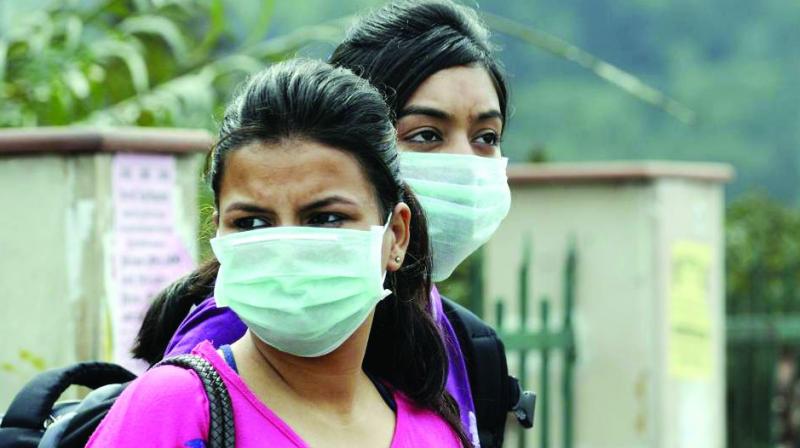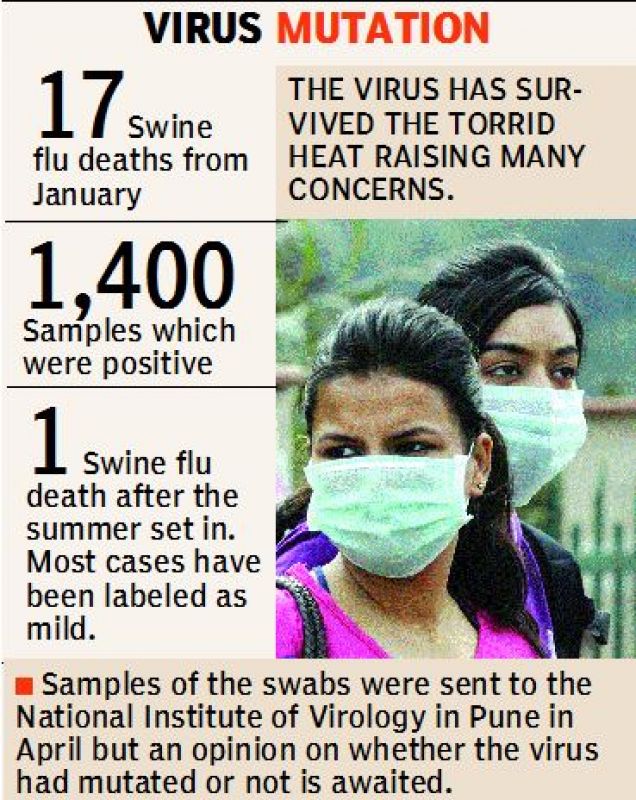Hyderabad: Blazing May, fails to rein in swine flu virus
Even in late March, as the day temepratures kept rising, doctors attributed the spread of the virus to the cool nights and early mornings.

Hyderabad: Despite the intense heat this summer, with the maximum nearly touching 43º Celsius and the minimum crossing 28ºC, 160 cases of swine flu have been recorded from March to May.
It was believed that the heat rendered the swine flu virus ineffective, which is why the disease was mostly seen when the weather was cooler. Even in late March, as the day temepratures kept rising, doctors attributed the spread of the virus to the cool nights and early mornings.
That the virus has survived the torrid heat is raising concerns that it could have mutated to survive the higher temperatures, which is a cause for worry for those whose immune system is compromised and those carrying high-risk pregnancies.
Dr Shiva Leela, director of Institute of Preventive Medicine, said swine flu cases were being seen in summer due to the mutation of the virus. The viral load in the body is mild and not very high, Dr Leela said. IPM sources stated that testing had continued as people were coming with samples. If the samples test positive, treatment is started in terms of providing medicine and placing the patients in isolation.
Dr Sharath Chandra, senior general physician, said the virus had got used to the climatic conditions of the region. “It spreads through the air. When there is a slight dip in temperatures it is active again and spreads through those who have been infected,” Dr Chandra said.
He said that only immune-compromised patients were reporting with heavy viral load and they comprised five per cent of the people who develop complications. “Others are given medicines, kept in isolation for three to four days and are back to normal,” he said.
Last year, it was found that most patients had mild attacks and had turned up at hospitals due to the awareness drives, Those who developed complications had secondary diseases like bilateral pneumonia, multi-organ failure among other complications which led to their death.
Senior pulmonologist Dr Pramod Kumar said immune-compromised patients and other sensitive groups like pregnant women, diabetics and people cardiovascular diseases have to be managed properly.
“In some cases it was found that underlying diseases emerged after the viral attack and led to complications which required very aggressive management. In these cases, the expertise of the doctor and hospital team in terms of care has to be very effective,” Dr Kumar said.
The continuous presence of the virus has moved the health department to identify high-risk pregnancies in the government programme for pregnant woman. Dr G. Subbalaxmi, joint director of epidemics, said, “We are reviewing the data. The options of providing swine flu vaccine to those who are in the high-risk pregnancy group are being considered to avoid last minute complications due to the virus.”


